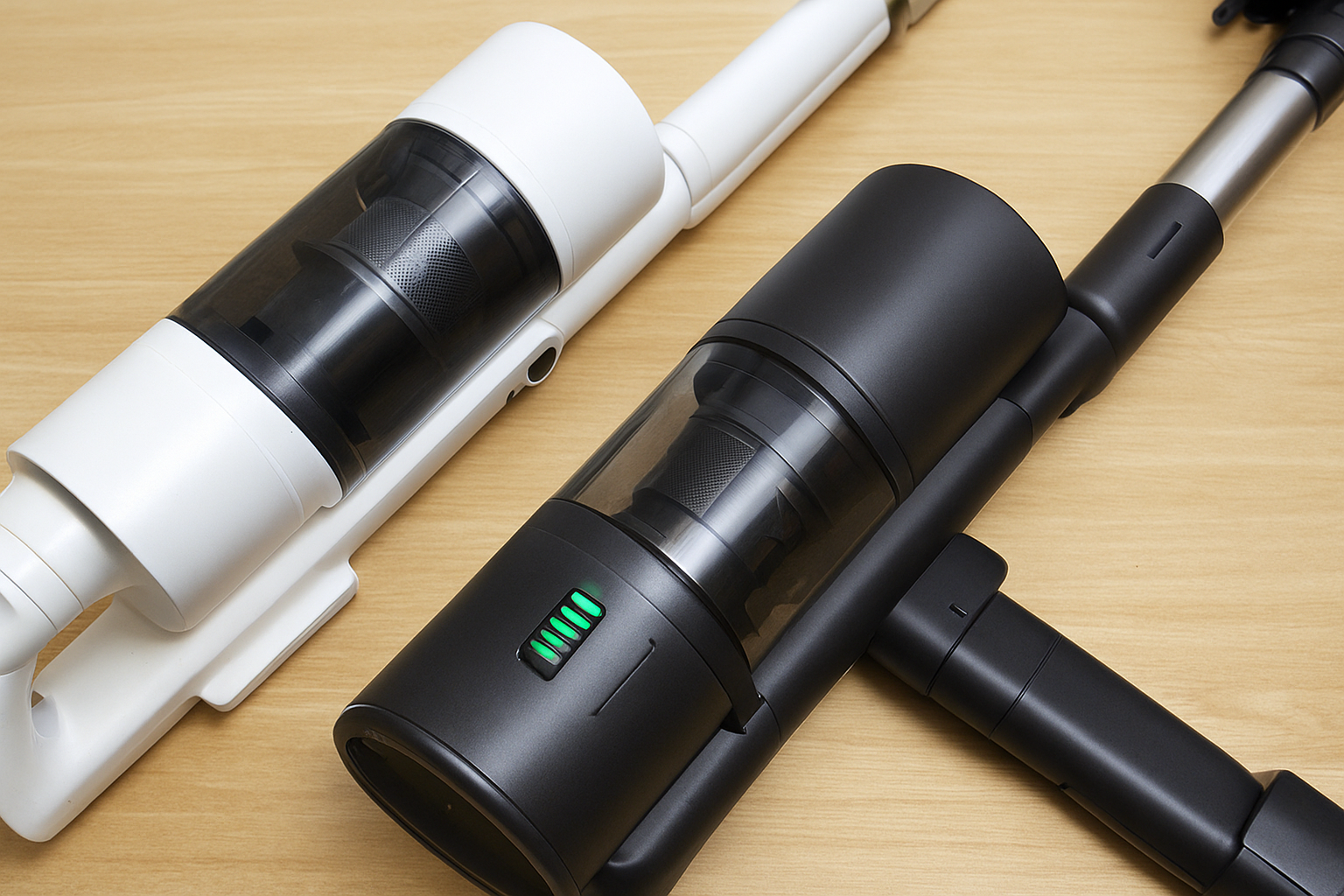Cordless vacuums promise freedom from cords, but too many users end up disappointed:
“It died mid‑clean.”
“It can’t pickup on carpet.”
“My brush is jammed again.”
These complaints aren’t isolated—they’re systemic. For distributors and product managers, understanding why cordless vacuums get returned is a must. Because every return = cost, trust lost, and margin eaten.
Let’s explore the most common return triggers, and how smarter design decisions can prevent them.
🔋 1. Weak or Misrepresented Battery Life
A major reason users return a cordless vacuum is unmet runtime expectations. Manufacturers promise “30 minutes,” but real-world tests often yield 10–15 minutes.
Why this happens:
Small capacity cells
No battery management system
No headroom for load variation
What to demand:
Real runtime tests under load
Use of Li-ion Cordless Handheld Vacuum Cleaner cells with matched specs
Replaceable battery packs
💨 2. Suction Suffers Under Load
Some cordless vacuums perform well on tile but fail on carpet or pet hair. As the motor strains, suction falls dramatically.
Design to require:
Motors with headroom for spikes
Proper airflow and filtration
Models labeled High Suction Vacuum Cleaner with sustained performance
🧼 3. Brushrolls That Jam Too Easily
Users hate when hair or fibers wrap the roller and stop it. The vacuum then “loses suction” in effect, prompting returns.
Solutions:
Self‑cleaning brush systems
Kit-free removal for manual cleaning
Self-Cleaning Vacuum Cleaner features that auto-clear clogs
🔇 4. Noise That Drives Users Nuts
A powerful cordless vacuum that sounds like a jet engine will end up in returns, especially in quiet homes, apartments, or near children.
What helps:
Low-frequency tuned motor
Sound dampening materials
Modes that balance suction and noise
Use of quiet vacuum cleaner technology is essential to reduce return risk.
📏 5. Overpromised Specs & Underdelivered Marketing
When listings exaggerate runtime, suction, or battery life, user expectations crash into reality.
What to check:
Spec sheets showing test conditions
Marketing that matches real performance
“Fair use” disclaimers
✅ Conclusion
Every return is a signal—cordless vacuums often fail due to battery, suction, brush jamming, noise, and overpromise. By prioritizing real-world specs and smart design—like what Lanxstar does in its Cordless Vacuum Cleaner and Li-ion Cordless Handheld Vacuum Cleaner lines—you reduce returns and preserve brand reputation.
Explore reliable lines and return‑resistant designs at www.lxvacuum.com
SEO TAG
Cordless Vacuum Cleaner, Li-ion Cordless Handheld Vacuum Cleaner, High Suction Vacuum Cleaner, quiet vacuum cleaner, Self‑Cleaning Vacuum Cleaner, Multi-Functional Durable Vacuum Cleaner, Fast Lightweight Vacuum Cleaner, Wet Dry Vacuum Cleaners, 4 in 1 Cordless Smart Wet & Dry Vacuum Cleaner, Car Vacuum Cleaner, Vacuum for Multi-Surface, Vacuum Cleaner for Allergies, vacuum return problem, battery runtime issue, suction drop, brushroll jam, noise complaint vacuum, vacuum user complaints, return rate vacuum, durable cordless vacuum, modular vacuum design, airflow leak vacuum, filter clog vacuum, vacuum performance test, vacuum specification mismatch, vacuum improvement tips, vacuum repair, vacuum design flaws, vacuum troubleshooting, vacuum product sourcing, Lanxstar vacuum, vacuum reliability, vacuum care guide, vacuum upgrade, vacuum seller tips, B2B vacuum sourcing, vacuum marketing claims, vacuum battery safe, vacuum efficiency, vacuum design engineering, vacuum rating transparency, vacuum cleaner returns, vacuum specification list, vacuum user guide, vacuum market trends

















